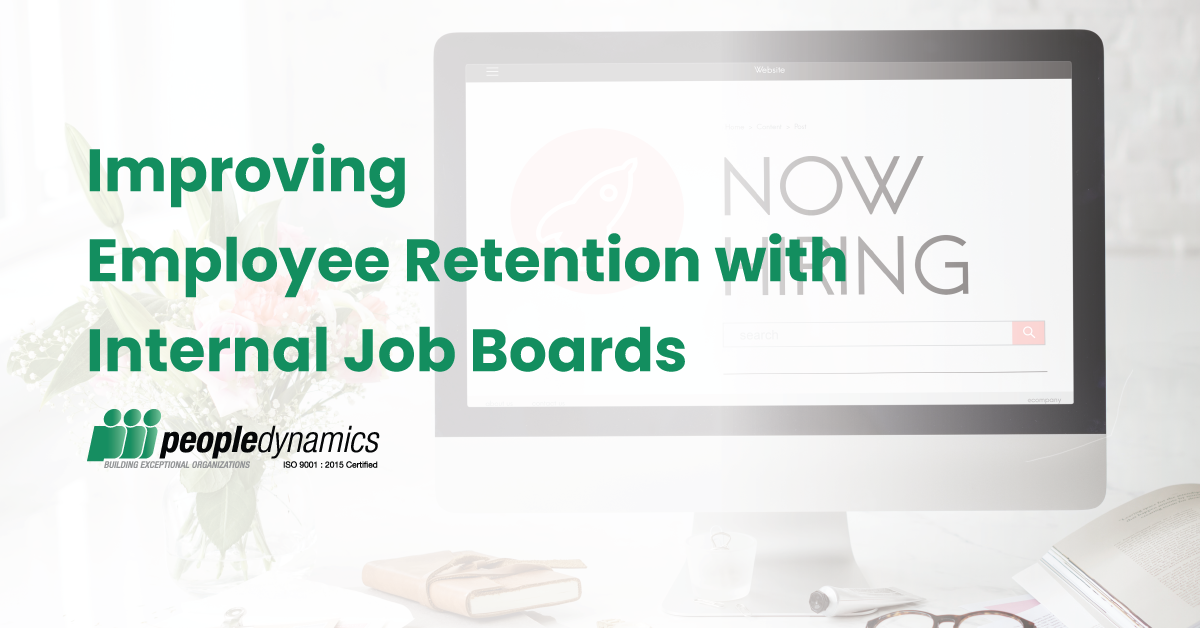Your employees have an enormous impact on your business. The decisions they make and actions they take day to day can have a tremendous effect on every element of your organization—from the workplace culture to your overall success. One of the biggest challenges for employers is inspiring and maintaining employee engagement. Around the world, employers seek creative and innovative ways to do this—issuing engagement surveys, planning team-building exercises, and more.
Employee engagement is defined as the involvement and enthusiasm of employees in their work and the workplace as a whole. Engaged employees are happier, more productive, and less likely to resign.
The way that companies treat their employees and how those employees treat one another can positively affect outcomes or they can place your organization at risk. According to Gallup, only 15% of employees worldwide fall into the “engaged” category. And, one of the easiest and most impactful ways to improve employee engagement is by recognizing and rewarding employees for their hard work. But, how?
Recognizing and rewarding employees can be done in a number of ways. Read on to learn why rewarding employees is important, how that can impact your business, and check out our favorite ways to reward employees that aren’t simply monetary in nature.
Why it’s important to reward employees
Rewarding your team for their hard work and jobs well done helps them feel appreciated and like important individual contributors. Employees are also more likely to react in a productive and positive way when management shows them how appreciative they are of their work.
Rewarding your employees helps:
- reduce employee turnover,
- boost employee engagement,
- foster a fun and positive culture,
- generate more revenue, and
- improve customer satisfaction
Rewarding employees can also improve organizational values, boost team morale, and more. Initiating a reward and recognition program might seem like a lot of work but this can be done simply and with a short runway by taking a few simple steps.
According to Office Vibe, the number one reason why most people leave their jobs is that they do not feel they are appreciated. With this in mind, the significance of employee recognition and reward simply cannot be ignored.
Why not just pay them more?
According to research conducted by Tim Judge and colleagues, the connection between salary and job satisfaction is weaker than you would expect. While you must absolutely compensate employees fairly, money isn’t the end-all for everyone.
Companies are now finding that employees still leave their jobs despite salary increases and bonuses. In the midst of global shifts in how people live and work, salary appears to be taking a backseat to other important considerations—from work-life balance to doing meaningful work.
For most businesses, simply raising salaries across the board isn’t feasible—especially for companies in growth stages who must be especially mindful of their “burn rate”. In larger organizations with salary bands or pay scales, monetary bonuses and salary increases are tricky, too.
If your goal is to boost employee happiness and engagement, personal recognition and rewards are the way to go.
17 Ways to reward your employees beyond a traditional bonus
One of the greatest rewards for employees is one that cannot be quantified: it’s recognition for their hard work. Recognition is invisible but priceless, relational, personal, and unconditional. It’s important to note that there cannot be a reward without recognition, which means that you must initiate a recognition program before you can get into the rewards.
If employees aren’t motivated by money, what is there to do? Savvy companies have found that motivating their employees can be done in a number of creative and unique ways. Here are some of our favorites.
Lunch on the boss
When an employee (or team) has worked hard on a project, treat them to lunch on the boss and—more importantly—with the boss. Whether a department head or the company CEO, having a member of senior leadership connect with employees 1:1 and take interest in their projects makes employees feel seen and heard. This is a great opportunity for those teams to access mentorship and provides a chance for human connection that may otherwise get missed during day-to-day operations.
Paid parking
In most cities, parking is expensive—cutting into your employee’s take-home pay and perhaps costing them time as they make the rounds looking for available space. Offering free parking is an incredible benefit for employees who commute! While this is easily done when you have a large parking lot available, it’s not so easily managed in urban settings where parking may be scarce.
If it’s not possible to cover parking for everyone, offering a week or month of free parking to employees as a reward for their hard work is a lovely and meaningful perk. Really want to treat the team? Offer them the best parking available—giving them the CEO’s spot for a week!
Birthdays off
What better way to say “Happy Birthday!” than to give your employees a day off as a gift? Offering a day off, with full pay, to celebrate their special day is a meaningful way to give back to your employees.
More paid time off (PTO)
As the saying goes, time is money. According to Celebrity Cruises, 20% of Americans would take five extra vacation days over a 10% raise. Extra time off gives your employees an opportunity to hit reset and rest, which can help them avoid burnout and, in turn, improve your retention rates.
Some companies have gone as far as to offer no cap on PTO—allowing their employees to take as much or as little time off as they need. This doesn’t mean employees are free to take an endless vacation, though. Instead, these policies allow managers to use their discretion in approving PTO requests and demonstrate trust in the employees’ ability to recognize when they need time off and behave accordingly.
Transit passes
Commuting can be a pain—and expensive. Depending on the city in which you live, organizations can access transit passes in bulk at reduced rates or offer partial payment of transit passes for employees. Covering all or some of the cost of your employees’ transportation to and from work reduces the strain of commuter costs and allows employees to save some of their hard-earned salaries.
Further, public transportation is more sustainable for our planet! Offering this perk to employees who choose public transport over single-occupant vehicles is an awesome way to increase its usage and reduce the number of vehicles on the roads each day.
Offer flexibility
If there’s one thing that’s for certain it’s that life doesn’t wait to happen after 5:00 p.m. when your employees leave the office. From family duties to personal appointments, home-based fiascos, and more, things pop up that require your employees’ immediate attention sometimes. According to Forbes, workplace flexibility is a smart talent strategy. And flexibility can go a long way.
From allowing your employees to choose the hours that work best for them, allowing them to leave mid-day for meetings or choose to work remotely as needed, to empowering them to tackle projects in different ways, flexibility can also be a wonderful problem-solving tool.
Rewarding your employees with a flexible approach to everything from when and where they work to how they get their work done shows them you trust them and allows them to take ownership of both their roles and their lives.
Reward effort, not results
Results are, of course, significant. Your business is measured in key performance indicators (KPIs) and metrics. Do you know what isn’t measured this way? Your people.
Regardless of the outcome of projects, recognizing and rewarding hard work over the best results tells employees that their hard work is not only seen but appreciated.
Make work meaningful
Offer your employees work that is interesting. Create (or let them create) special projects or opportunities that allow them to excel, showcase their talents, and explore their passions.
The Harvard Business Review found that nine out of 10 people are willing to earn less money to do more meaningful work—and this was across age and salary groups. Since not all employees will find every project equally meaningful, it’s important to talk to your teams and listen to what they have to say. Then, reward your teams with opportunities to dig into the work that makes their hearts race and celebrate their passion.
Dump a project
Not many of us can honestly say we’ve never worked on a project we were less than enthused about. In fact, we’ve probably all dreamt of dumping that project on our boss. And so, this reward is one we can all agree is pretty awesome.
Every once and a while, check in with your team members and ask them to choose a task or project that they want to pass off to you. This frees your team up to focus on more meaningful work and allows you to better understand what tasks or projects might be bogging them down and keeping them from hitting their true potential. Plus, it just feels good to know someone else is doing that job you didn’t want to do.
Give a hall pass
It’s been widely reported that up to 40% of employees will call in sick, even when they’re feeling just fine. These “fake” sick days could be the result of an employee feeling overwhelmed, on the verge of burnout, or even just that they have something else they want—or need—to do.
A “hall pass” essentially allows your employees to miss a day of work every now and again with no questions asked.
Create space
Offices can be challenging places for employees to be all day—especially in open concept environments where noise and movement can be overwhelming and distracting. Create space for employees to take time to reset and recharge, whether a special “quiet room” or communal hangout zone for employees to head to throughout their day.
These chill zones serve as a destination when employees need to get away from their desks. They can be recreation rooms with games or quiet spaces where team members can unwind or meditate. These rooms can reduce stress, which increases productivity, providing a reward for both your employee and the organization.
Make a brag board
A brag board is a place where your employees can toot their own horns, so to speak, and brag about their accomplishments. These boards allow employees to share their successes with their peers and foster a culture of celebration and transparency.
Host family day
Your employees are unique and complex individuals with lives outside of their 9-to-5. Give back to them and their families by hosting a family day. These events celebrate both your employee’s hard work as well as the sacrifices families make when your employees work late or travel for work.
Family days can involve fun activities for all ages, games for kids, and even door prizes or swag and offer employees a chance to unwind and get to know their peers and their families in a safe and casual environment.
Shout it from the rooftops
Rewarding and recognizing your employees doesn’t have to be limited to the inner-office communique. Share your employees’ successes with your customers, clients, partners, and the world at large.
Issue notices internally when an individual contributor or team has put in extra hours on a project. Share your employees’ fantastic work on LinkedIn or your corporate blog and other social media platforms.
Initiate a peer-to-peer kudos program
One of the most collaborative and team-friendly ways to reward your employees is through a peer-to-peer kudos program. Platforms like Bonusly allow your employees to reward one another with “bonuses” that can be redeemed for real-world rewards like gift cards, products, or even charitable donations.
Give each employee a set number of points per month that can be given out and reset at the end of that month and watch the team celebrate and reward one another.
Host an Awesome Day
Awesome Days are company-wide, company-unique “holidays” designed to celebrate the successes of the company and its people. Some organizations host Awesome Day on the day the company hits its previous year’s revenue target. Others have a specific date, such as the company’s “birthday”, which the celebration falls on each year.
Awesome Day is an extra holiday for your team. Some ideas for it are:
- Serving cake or hosting a BBQ
- Bringing in catering for breakfast or lunch
- Closing the office early/Taking a half day off
- Awesome Day awards
- Swag for all employees
Say thank you
Finally, while it might seem too simple to be true, the single best way to recognize and reward your employees is to say two little words: thank you. (And say it liberally!) Showing your appreciation for employees’ hard work goes a long way—and the importance just can’t be overstated.
According to the Achievers 2020 Engagement and Retention Report, 82% of employees wished they were recognized more often. Saying thank you costs absolutely nothing, takes very little time, and can be done day in and out. The most important part of saying thanks is to make it genuine and personal.
- Use the employee’s name
- Be specific (“Thank you for your work on the XYZ project. I appreciate the attention to detail.”)
- Focus on effort, not results
- Be genuine
Wrapping up — Employee rewards and motivation can go beyond monetary value
While there’s no doubt many of these rewards come with a financial cost to employers, the key to innovative rewards programs is to find valuable and tangible ways to reward your employees with thoughtful and personal actions and items that make their lives easier, better, or more enjoyable—both at work and at home.
Reward and recognition programs are unique ways to improve company culture, boost morale, and increase employee engagement. As employees continue to seek more satisfaction at work, these programs can help your company differentiate itself and establish new and smarter strategies for attracting and retaining the best talent.




